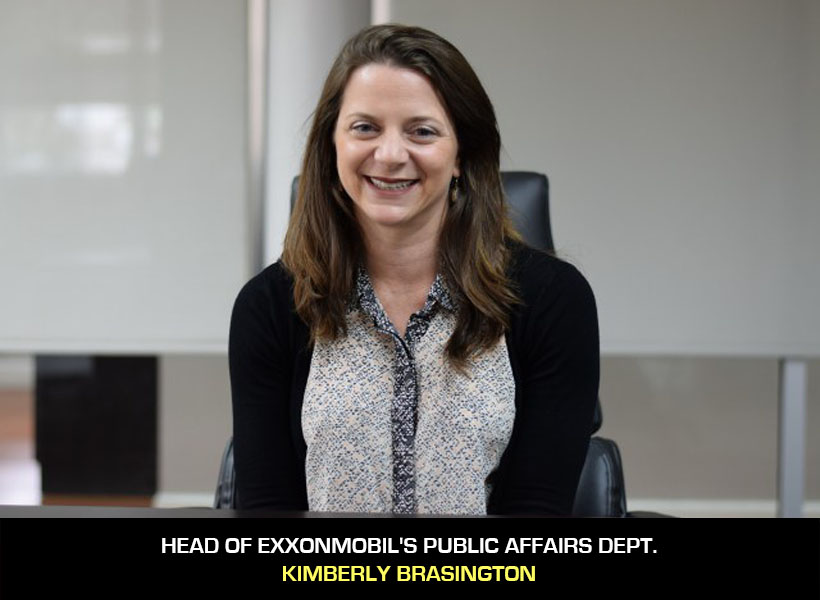Prior to 2015, Guyana was virtually a frontier nation in the oil world. This was reflected in the highly-investor friendly terms of the 1999 Production Sharing Agreement (PSA) it had with ExxonMobil. Now that there is evidence that Guyana is a bonafide holder of massive amounts of oil, the fiscal terms will have to evolve.
This is according to Kimberly Brasington, the former head of Exxon’s Public Relations Department here. In an interview with Guyana Standard on Friday last, Brasington said that ExxonMobil is quite aware of the fact that when countries move from a frontier state to a mature one, fiscal terms have to change.
She said, “We have seen this is Brazil when their pre-salt discoveries happened. There were some existing terms for operators to get in and prove that it is there…but since it was found, now people who want in, and people who are in it, they have to get completely different terms. The terms evolve. ExxonMobil is accustomed to this. We do this around the world in frontier and mature nations and we are there for decades. …”
Brasington added, “We are in the very early days of this. We are looking at 30 to 40 years into this relationship and it will have to be what is right for not just Exxon but Guyana.”
Given this response, the Guyana Standard asked Brasington if her company would be ready and comfortable with the evolution of fiscal terms for the Stabroek Block as the project progresses.
The Exxon employee said, “I mean, I wish I could be comfortable saying that to you. In my heart, yes, we as a company will grow and evolve with the country.” That is as much as she would say on that matter.
She reminded however that it was the International Monetary Fund (IMF) which was the first to point out that with the progression of the Liza Project, fiscal terms will have to be improved for Guyana.













